Episode 4
Air Date:
1/8/76
Synopsis:
The Hartmans and Shumways are in court to assist a family member in trouble. Grandpa Larkin feels like a volleyball. Mary tries tempting Tom in the kitchen, but he has other ideas: a date night at the Capri Lounge, where Loretta is finishing her engagement.
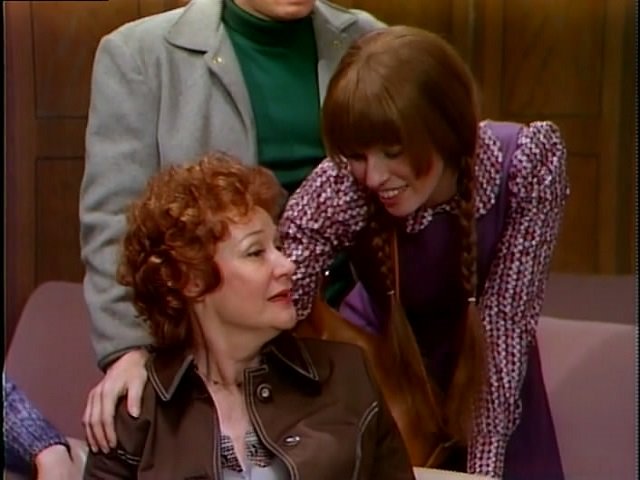
Review and Commentary:
The best part of this episode is the development of the Hartman's marital problems in a powerful last scene at the Capri Lounge. But the episode splits its focus, first focusing on Grandpa Larkin and the fallout from his latest arrest for flashing.
We open with everyone in court, where a judge (Ivor Francis) is reviewing Grandpa's case. This time, he's been up to his nasty deeds at a nurse's luau at Fernwood Receiving Hospital, which is at least slightly less repugnant than when he got caught at Fernwood Elementary.
To be honest, I don't find the "Fernwood Flasher" story line all that compelling. It feels like a rare case where shock value was the goal in and of itself, with some good gags along the way, but very little substance behind it. It was one of executive producer Norman Lear's specific mandates for prospective writers that they be on board with the Fernwood Flasher turning out to be Mary's father during the first week of episodes1. As writer Ann Marcus wrote in a fascinating article reminiscing about the show, it was her idea to change the identity of the flasher to Grandpa Larkin. She understood instinctively that the audience would never get past this revelation if it had been about a younger (middle aged) man.
As was discussed in the comments for episode 2, the playing up of Grandpa's senility here seems designed solely to soften the moral judgment viewers would otherwise hold him to. It makes sense that the story would need to be presented this way if the character were to retain any audience sympathy at all. But the idea really goes nowhere beyond the initial shock value, and doesn't fit in well at all with how Grandpa is portrayed through the rest of the series (which is much more interesting and nuanced). The writers never tried to retcon these events; there were occasional references to Grandpa's early indiscretions throughout the series, but they remained merely jokes never connected in any meaningful way with his character that I can see. It's one of the rare elements of the series that I think plays as a bit cheap, and even more distasteful now than it must have 40 years ago.
The funniest part of the whole courtroom scene is the closing, a callback to episode 3:
MARTHA: I haven't understood one thing that's been said.
MARY: It's okay, Ma. We're all going to the House of Pancakes.
Grandpa's problems continue to take center stage in the next scene when he goes home in the custody of Tom and Mary. There's a nice dialog here between he and Mary where he talks about feeling like a volleyball being kicked around, the object being to get it out of your court as fast as possible.
But it's the closing of this scene that kills me every time. Tom slumps off to bed ahead of Mary, claiming to be so exhausted that he'll be asleep before she even gets there. Mary who clearly had something else in mind simply says, "I could rush." There's practically nothing funny about that line in concept, but Louise Lasser's expression and timing here are indescribably perfect. Just look at this screenshot while hearing Mary say in her trademarked, spaced-out way to no one in particular, "I could rush." Maybe it's her stillness, maybe it's the goofy expression on her face. All I know is, it's funny.
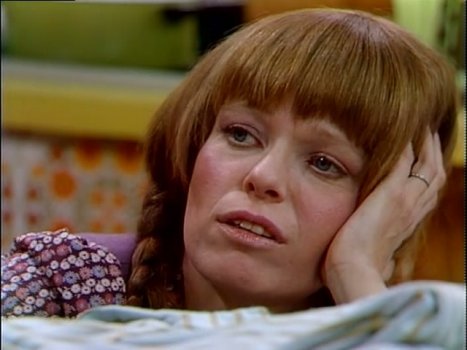
I could rush. . .
The next morning, George comes over to take Grandpa back home,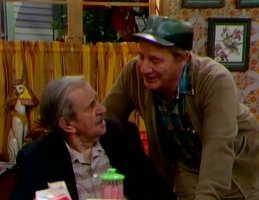 his hobbling entrance another unmistakable (if subtle) sign of his chronic hemorrhoids, the poor guy. There's a nice moment between them where he's shouting directly into poor Grandpa's ears, earning the response, "Don't talk at me, talk to me. I'm old, not deaf!" Grandpa Larkin despises his son-in-law and it's fully mutual. The only difference is that George tries (very poorly) to pretend otherwise for Martha's sake. We also see some more evidence of what I consider Mary's sub-ideal parenting, trying to protect a savvy, no b.s. kid like Heather from the truth of the situation with Grandpa.
his hobbling entrance another unmistakable (if subtle) sign of his chronic hemorrhoids, the poor guy. There's a nice moment between them where he's shouting directly into poor Grandpa's ears, earning the response, "Don't talk at me, talk to me. I'm old, not deaf!" Grandpa Larkin despises his son-in-law and it's fully mutual. The only difference is that George tries (very poorly) to pretend otherwise for Martha's sake. We also see some more evidence of what I consider Mary's sub-ideal parenting, trying to protect a savvy, no b.s. kid like Heather from the truth of the situation with Grandpa.
MARY: I don't want Heather to be exposed to exposure!
Heather's way too smart to be fooled with the cover story they've cooked up for Grandpa's staying over. "They don't paint rooms at night," she monotones, not even interested enough to look up from her cereal. Note, too, the way Mary takes Heather's breakfast away before Heather can even manage a few bites, just so she can shuttle Heather out of the house before she learns the full story.
After failing to tempt Tom to ravish her in the kitchen, Lasser delivers the kind of surreal monologue that only she could. Such great writing, and delivered to perfection:
MARY: No, it's not my problem, it's his. In fact, this is so much his problem, it's not even my business. No, it is my business, this is definitely my business. This is so much my business that it's not even his problem.
What really makes this work (beyond the excellent writing) is Lasser's dreamy, halting delivery, which sells the idea that the thoughts are occurring to her as she says them.
The rest of the episode takes place at the Capri Lounge, which we've heard mentioned by the characters but have never seen2. Tom and Mary's outing to the Capri Lounge for Loretta's last gig before super stardom reveals that it's nothing but the lounge area of a bowling alley, not that Loretta allows that to affect her bouncy performance. She's a knockout every time she sings, no matter how corny the song or the introductions that lead up to them. You have to love the way she conjures up an extra syllable at the end of her first number, turning the word "affair" into "affair-hair".
In between shows, Charlie dashes off and leaves Mary and Tom alone to talk so he can "bust the blushing bride between shifts". I've never heard the expression "bust the blushing bride" before, but I can pretty well guess what it means even if Mary can't. When she asks Tom, he tells her it's "a musical term, honey."
The dialogue that follows between Tom and Mary3 is the one that first woke me up to just how intense the series could get, and to how easily Lasser can break your heart when Mary's in pain. Tom is wrapped up in recreating some kind of fantasy of a high school date night. One of his biggest hangups is that he's stuck in an over-idealized past, resentful of all the dreams he thinks he's been robbed of. Mary reaches out to him in the kindest way imaginable, and his response is one of pure sexual aggression, out to prove his manhood once and for all.
But as usual with MH2, it's more complicated than just Tom being a tool (which he is). Mary isn't the most sensitive wife at times herself: she ought to know better than to compare Tom to Johnny Carson rather than Robert Redford. But even if she can be forgiven for that, she certainly should have read his hurt feelings at that point and not repeated the same comparison immediately—with even more confidence! Tom doesn't think Mary sees him as a sexy, so he hits back by dismissing her as a girl-next-door type, to which Mary replies, "I'm not next door, I'm right in the house with you." When she catches on to what he was implying, she turns very serious.
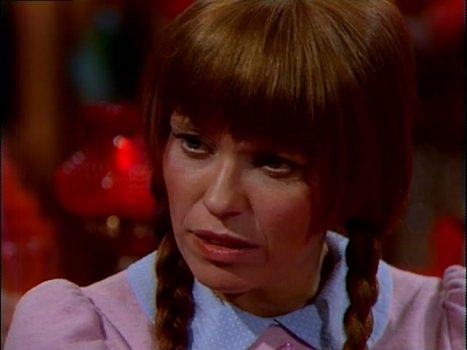
I'm not that sweet. I'm an animal.
Mary's quoting of Reader's Digest as she tries to reach out to Tom should be funny in exactly the same way as her obsession with other products has been. But it's not at all because it's contained in a moment of such rawness that whatever humor is there all but vanishes into the fog of Mary's uncomprehending pain. This is another signature of MH2: oftentimes you just don't know how you're supposed to react to the tug of war between its absurdist humor and deadly serious drama.
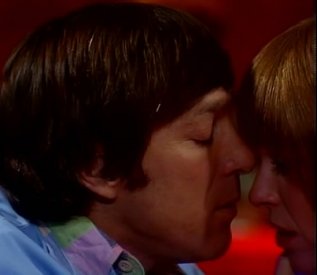
 We only see Cathy briefly this episode, waiting tables at the Capri. But she does have a particularly good moment after she sees Tom storm out of the lounge with Mary following after looking very confused.
We only see Cathy briefly this episode, waiting tables at the Capri. But she does have a particularly good moment after she sees Tom storm out of the lounge with Mary following after looking very confused.
MARY: I think he's getting romantic.
CATHY: He didn't look romantic.
And she's absolutely right. Before Mary catches up with Tom, who does she run into but Sergeant Foley again. His ability to mesmerize Mary with the intensity of his gaze starts to really take hold here. His boldness in reaching out to touch her face is pretty startling, considering Tom has left the bar only moments ago. What impresses me most about Foley is that he's not all that good looking a guy, yet is still able to (believably) stop Mary dead in her tracks. Even while wearing the single ugliest shirt/sweater combination outfit in the history of modern textiles.

There's something about him, though, that Mary can't get out of her head. And as Sgt. Foley has already discovered, there's something about Mary, too.
1 His other mandates were the mass murder of a neighboring family, and a scene where Tom is shown to be sexually impotent. All three took place not just in the first week, but in the first episode. Back
2 You know when you see a new set this elaborate on a show with as tight a budget as MH2 that there will be scenes set there for a long, long time to come. The rest of the series, in fact! Back
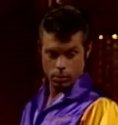 3 Note the greaser-type bowler eavesdropping on Tom and Mary throughout the scene. That is unmistakably Archie Hahn again, the same actor who played the reporter in the previous two shows. There must have been even less room in the budget for background extras than there was for sets. Back
3 Note the greaser-type bowler eavesdropping on Tom and Mary throughout the scene. That is unmistakably Archie Hahn again, the same actor who played the reporter in the previous two shows. There must have been even less room in the budget for background extras than there was for sets. Back
Actors:
Director:
- Log in to post comments
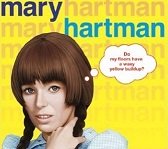
Comments
SkipEastport
Fri, 12/27/2013 - 19:34
Permalink
Tug of War
" oftentimes you just don't know how you're supposed to react to the tug of war between its absurdist humor and deadly serious drama."
Even as 10 year old kid in 1975, this is what I loved most about MH2, and if you read the reactions of its detractors, then and now, this seems to be the element that most polarizes the fans from the haters. The old "they just don't get it excuse" is used too often, but in the case of MH2 I think it's really true. People expect it to be a straight soap because of the format, and those who know it's not a traditional soap can't understand that it's not really a parody or a spoof but a razor sharp satire. I read a lot of negative reviews accusing MH2 of not knowing what it wants to be. I disagree completely. I think it knew exactly what it was from Day One, and mangaged to strike an amazing balance, at least in the early days.
WGaryW
Sat, 12/28/2013 - 19:09
Permalink
re: Tug of War
Naturally, I couldn't agree more. I was expecting more of a drop off in quality as the show progressed, if only from the continued strain of producing 5 episodes a week. But I was surprised at how well it held up, and yes, how consistent the inconsistent tone was. My theory is that this show produces actual cognitive dissonance in people who aren't on the same wave length. And people really don't like experiencing cognitive dissonance.
SkipEastport
Fri, 12/27/2013 - 19:59
Permalink
Dennis
Bruce Solomon was terrific as Dennis. Back in the day, Beeson Carroll was my MH2 hunk, though I did like Bruce Solomon's chest hair creeping up out of his policeman's uniform.
That hideous pink sweater looks like material my grandmother would've used for a bedspread in her spare room!
The thing with Foley and Mary was down to Bruce Solomon's portrayal. The character was supposed to have been a much older guy and very unattractive. Bruce was cast because he was an acting student of the director Joan Darling. He was to have been written out early on, but was saved because Norman Lear's daughter liked him.
What was great about Bruce's portrayal was that he used his eyes, voice and his body in a very sensual way. It was something they could get away with on a soap because at five half hours daily, they had a lot of time for the pregnant pauses and extreme closeups that would've gone into the dialogue instead on a primetime drama. In the scenes with his female partners, Bruce spends lots of time gazing longingly into their eyes. You can tell that he's (the actor) listening intently to every word and reacting to it. And it makes sense because that's the one thing that Mary didn't get with Tom. Bruce's Foley gives her the attention she craves and does it with warmth and gentleness. His choices as an actor were perfect, so it didn't matter that he wasn't tall, dark, and handsome like he would've been on a traditional soap.
WGaryW
Sat, 12/28/2013 - 19:19
Permalink
re: Dennis
All so interesting. I can only guess that you get all this great background info from reading about the show when it was originally aired, because I find so precious little about it on the internet.
So I had no idea that the original conception for Dennis's character was an older, unattractive guy. That would have changed the tone of the story completely. I think they made 100% the right choice, a not-gorgeous but completely magnetic, intense younger man. Much more threatening to Tom's masculinity, and allows the writer's to explore Mary's sexual frustration outside of her scenes with Tom. Also, the direction they ultimately took his character wouldn't have worked-- he was soon seen to be a sort of free-lovin', honest-only-to-a-point womanizer (though sincerely besotted with Mary).
As for that sweater, the thing that really puts it over the top for me even beyond the repulsive color is the plunging neckline combined with that gargantuan shirt collar. Honestly, the fashions in the 70s were the absolute worst. Who'd imagine that Mary's gingerbread dresses would age better than most of the "realistic" fashions. . . ?!?
SkipEastport
Fri, 12/27/2013 - 20:00
Permalink
Dennis
Bruce Solomon was terrific as Dennis. Back in the day, Beeson Carroll was my MH2 hunk, though I did like Bruce Solomon's chest hair creeping up out of his policeman's uniform.
That hideous pink sweater looks like material my grandmother would've used for a bedspread in her spare room!
The thing with Foley and Mary was down to Bruce Solomon's portrayal. The character was supposed to have been a much older guy and very unattractive. Bruce was cast because he was an acting student of the director Joan Darling. He was to have been written out early on, but was saved because Norman Lear's daughter liked him.
What was great about Bruce's portrayal was that he used his eyes, voice and his body in a very sensual way. It was something they could get away with on a soap because at five half hours daily, they had a lot of time for the pregnant pauses and extreme closeups that would've gone into the dialogue instead on a primetime drama. In the scenes with his female partners, Bruce spends lots of time gazing longingly into their eyes. You can tell that he's (the actor) listening intently to every word and reacting to it. And it makes sense because that's the one thing that Mary didn't get with Tom. Bruce's Foley gives her the attention she craves and does it with warmth and gentleness. His choices as an actor were perfect, so it didn't matter that he wasn't tall, dark, and handsome like he would've been on a traditional soap.
WGaryW
Sat, 12/28/2013 - 19:36
Permalink
re: Dennis
Absolutely-- his stare is what completely sells me on the effect he has on the women in the show. Great (re)acting. And I don't recall ever seeing him in another show, ever, though looking over his imdb credits, I know I must have because he was in an episode of St. Elsewhere, which is another all-time favorite of mine, and also Barney Miller (another great series which was rescued from Sony's abandonment by Shout! Factory.) I have to go back and check these episodes out now that I know who he is. I even have a copy of his guest shot on "The Love Boat", of all things. . . his segment is described as follows: "Wealthy phonies (Don Defore, Rosemary Decamp, David White) shower attention on a grocery clerk (Bruce Solomon) they believe to be a supermarket tycoon." Sounds like a real classic.
Forever Fernwood
Fri, 01/03/2014 - 05:27
Permalink
Solomon on the Love Boat
I caught Solomon on that The Love Boat episode. It was on MeTV a few months ago.I was thinking at the time how he always had charisma.
WGaryW
Fri, 01/03/2014 - 11:53
Permalink
re: Solomon on the Love Boat
I actually did watch my copy of that as I said I was going to, but didn't add any comment to that effect because, well, it was The Love Boat, and about what you'd expect. But there was still a sincerity and forthrightness about his character in that show similar to Foley's. It's all in the eyes!
Forever Fernwood
Fri, 01/03/2014 - 05:31
Permalink
Howard and Ed
Yeah don't even get me started on Howard and Ed. We probably shouldn't talk about spoilers in episode 4, but they got a raw deal IMO. Beeson Carroll was a hunk, and even the last time I saw him in something he still looked just the same, only with grey hair. He kept himself looking good. Larry Haddon just died last year. Who can forget him as Dr. Ackerman on KL?
WGaryW
Fri, 01/03/2014 - 12:05
Permalink
re: Howard and Ed
I'm open to anyone else's opinions on this, but my feeling is that while I will avoid spoilers in the reviews themselves, they're 100% ok in the comments, just put a spoiler warning first.
Beeson Carroll was a hunk all right, and his playing of the part of Howard sure helped too. He was such a lovable character, one of the most purely "nice" on the entire series. Probably why he and Mary had such a strong connection. His biggest character flaw was timidity.
I never watched Knots Landing so I had to do some searching to figure out what "Dr. Ackerman on KL" was. . . the imdb shows him in just 6 episodes, but looking at this site, it's clear he was in many more than that: http://www.knotslanding.net/episodeguide/season6.htm (just do a text search for "Ackerman" to skip to the relevant episodes). I gather he was an evil character from what I read there.
SkipEastport
Sat, 01/11/2014 - 18:14
Permalink
KL
Yes! That was my favorite season of Knots Landing, and Larry was so good at being bad. The scene where he blew his brains out in front of Mack and Karen was the biggest shock. I love that being a Mary Hartman fan, i can generally be assured that other MH2 fans will share my admiration for similarly intelligent or quirky series. wgary and I both like St. Elsewhere, and you and I enjoy KL. I bet there're other shows like The Days and Nights of Molly Dodd or China Beach that MH2 fans also liked.
Forever Fernwood
Tue, 01/14/2014 - 12:57
Permalink
Great shows, especially
Great shows, especially DANOMD. All the shows mentioned were about smart, strong women. What does that say about us? ;-)
RedOwl
Tue, 12/31/2013 - 09:12
Permalink
Fashion
"Even while wearing the single ugliest shirt/sweater combination outfit in the history of modern textiles."
Tom's pastel number isn't much better. ;)
WGaryW
Tue, 12/31/2013 - 18:32
Permalink
re: Fashion
Just wait till you see Tom in his one-piece turqoise jump suit. . .